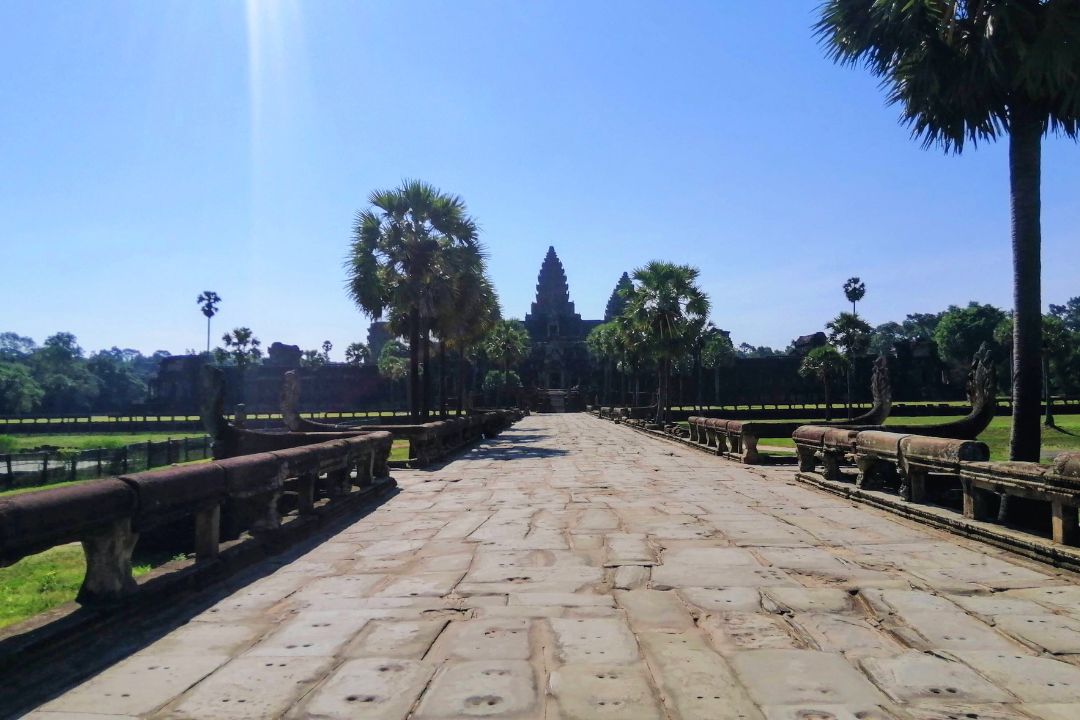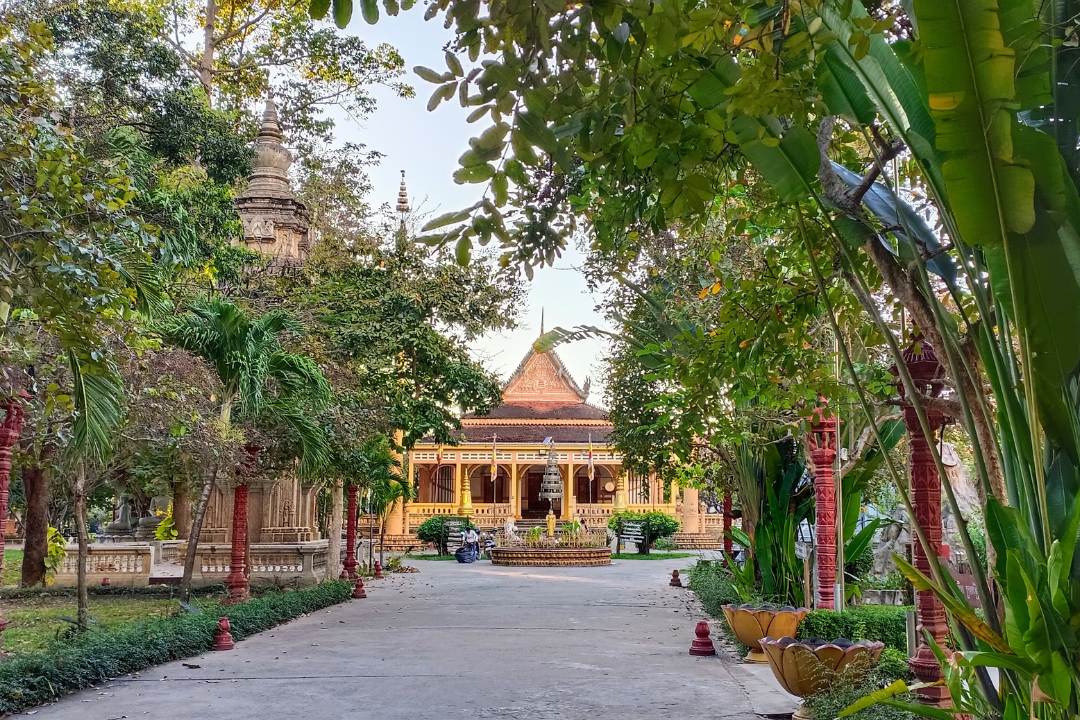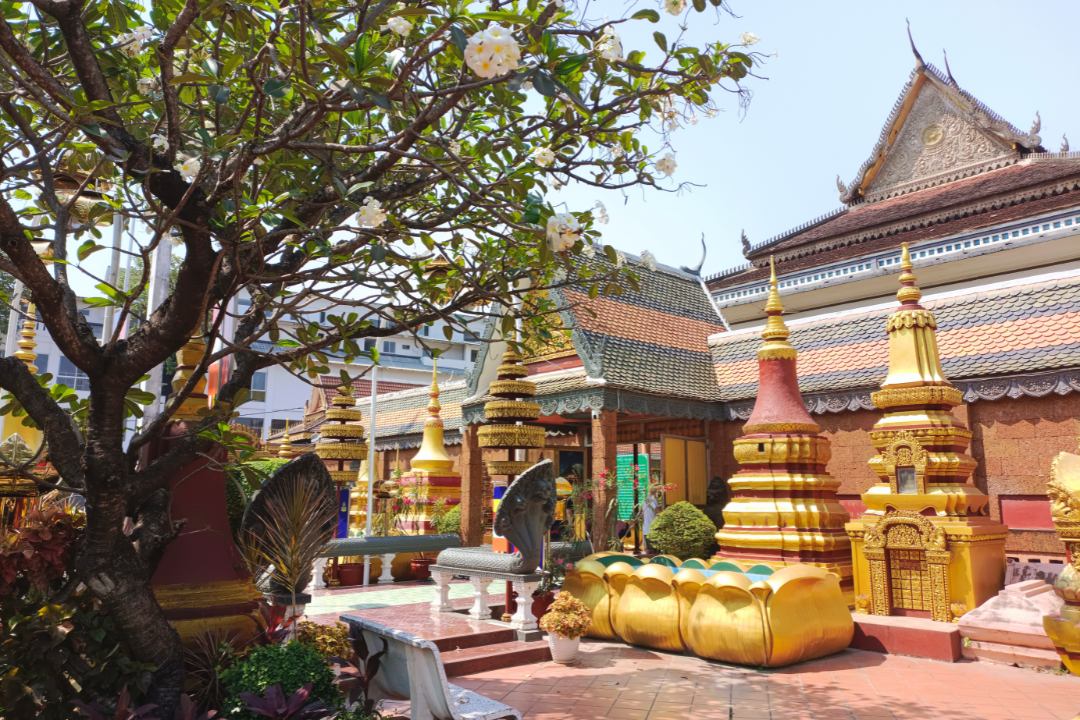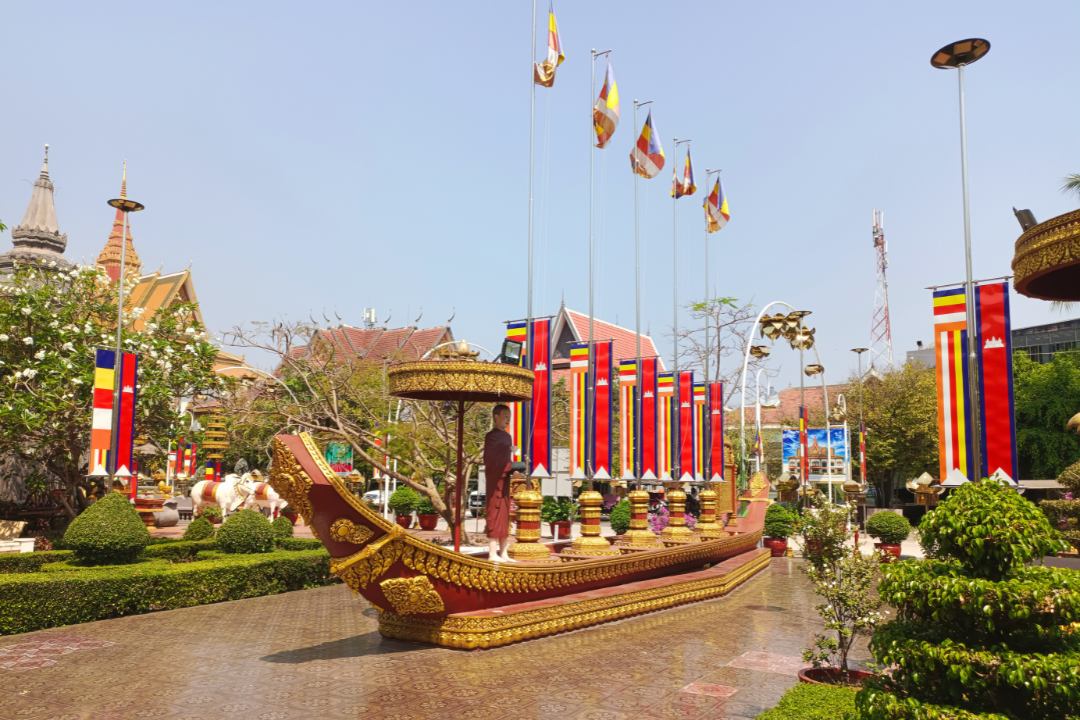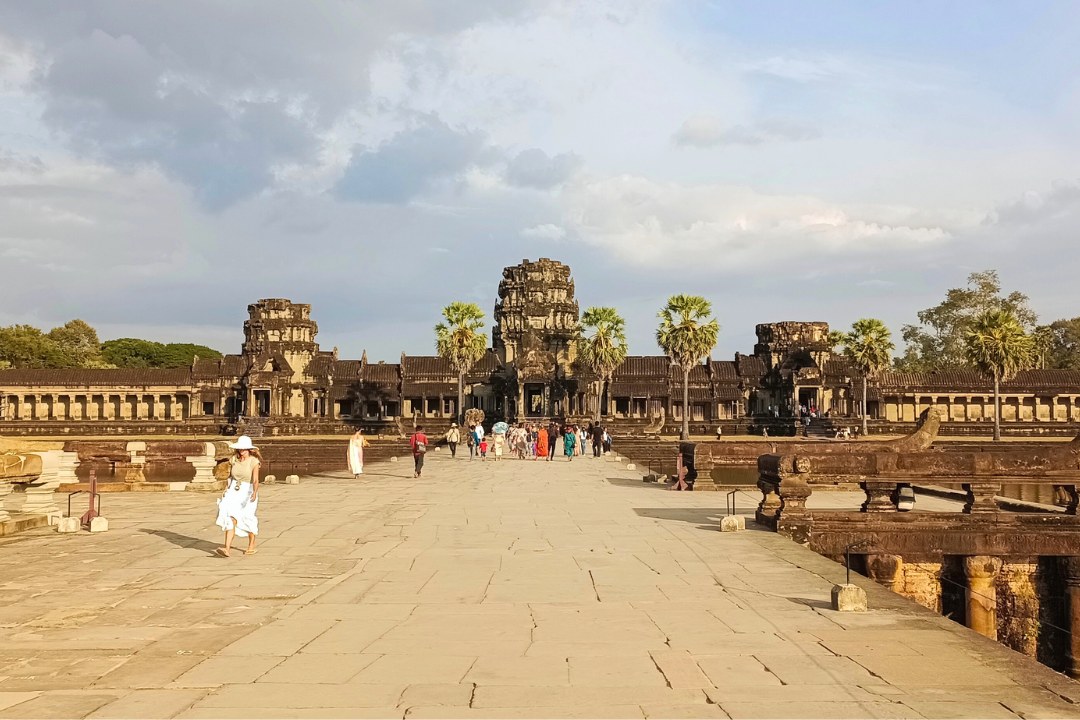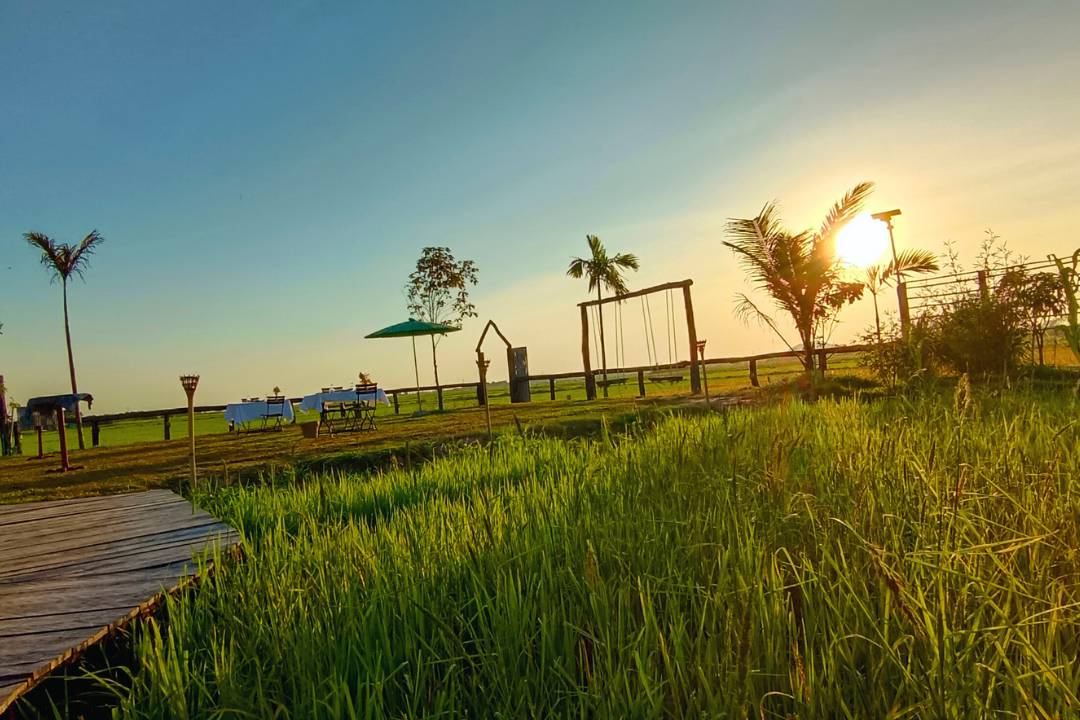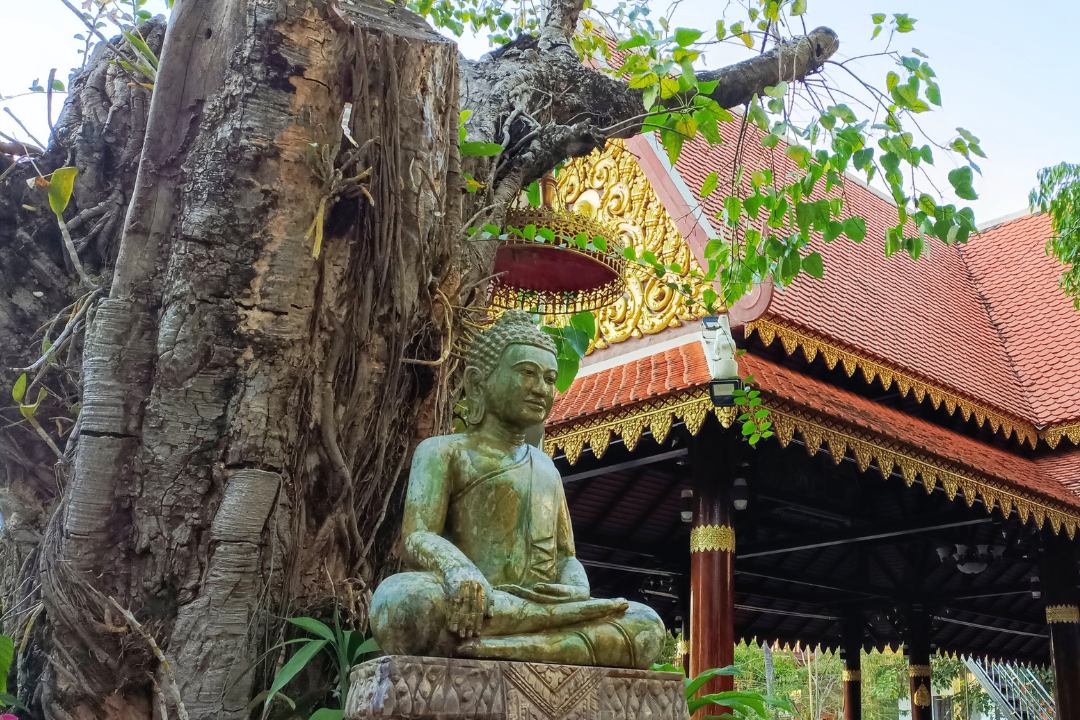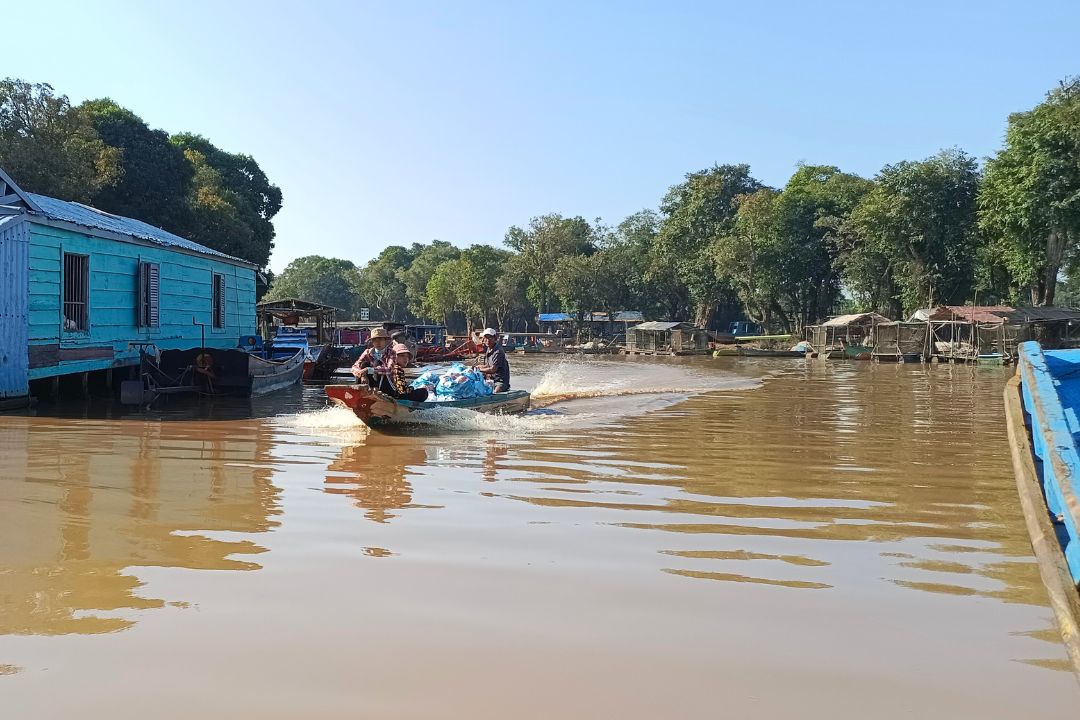14 Must-Experience Cambodia National Holidays and Local Events
Your Ultimate Guide to Cultural Immersion
Learn about the major cultural festivals, celebrations, and events that take place throughout the year in Cambodia.
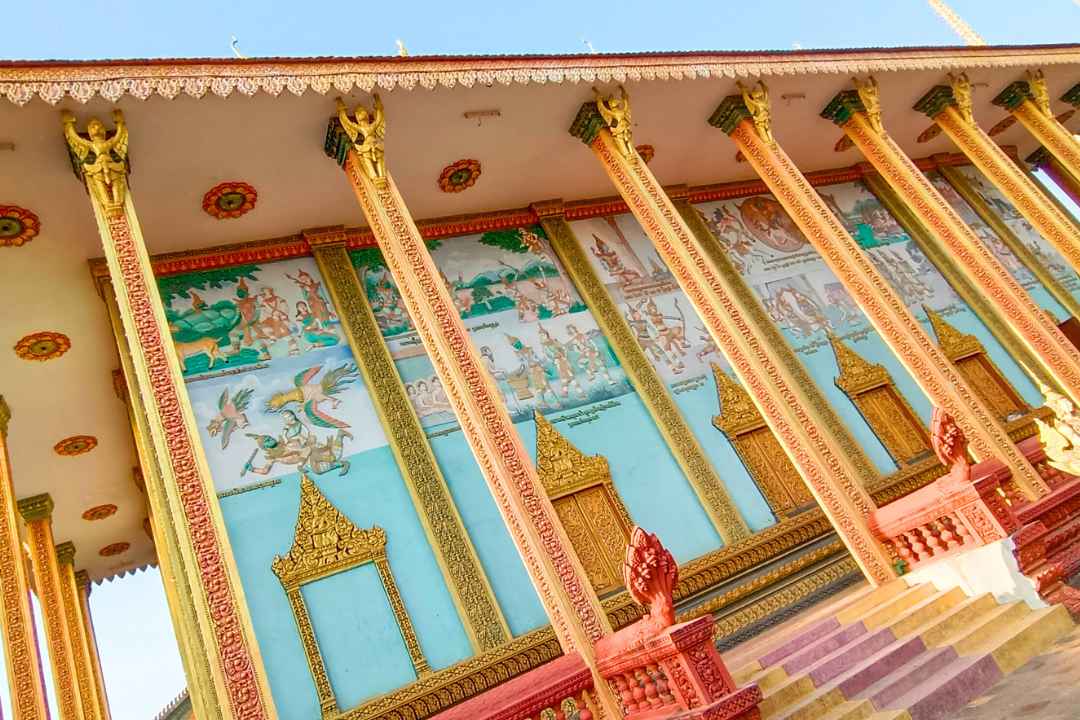
Cambodia national holidays and local events - From the waters to the Moon!
Cambodia is a nation steeped in rich cultural traditions that are deeply intertwined with its religious and historical roots. Throughout the year, the country comes alive with a vibrant array of national holidays and local events that offer visitors an unparalleled opportunity to immerse themselves in the country’s vibrant heritage.
These holidays and local events includes the Angkor Festival, Khmer New Year, Royal Ploughing Day, Meak Bochea (Festival of the Monks), Water and Moon Festival, and Buddha’s Birthday.
Cambodia annual festivals and events are strongly ingrained in the country’s cultural and religious traditions.
Listed here are some of the most important annual celebrations and events:
- Khmer New Year (Bon Chol Chhnam Thmei): Celebrated on April 13 or 14, this three-day festival marks the end of the harvest season and is considered the most important holiday in Cambodia. It is a time for Cambodians to return to their villages, spend time with family, and visit local pagodas.
- Royal Ploughing Ceremony (Bon Chroat Preah Nongkoal): Held in May, this ceremony marks the beginning of the rice-growing season. It involves sacred oxen plowing a ceremonial row, and the king makes predictions for the season based on which foods the oxen eat.
- Meak Bochea Day (Buddha’s Preachment Commemoration Ceremony): Celebrated during the full moon of the month of Meak, this festival commemorates the spontaneous gathering of monks to listen to the Buddha’s preaching.
- Visakh Bochea Day (Buddha’s Birth Commemoration Ceremony): Celebrated in May, this day marks the anniversary of the birth, enlightenment, and death of the Buddha.
- Water Festival (Bon Om Touk): Held in November, this festival is a time of great celebration and features colorful boat races on the Tonle Sap River. It is a significant event in Cambodian culture.
- Pchum Ben (Ancestor’s Day): A 15-day holiday that usually runs from late September to mid-October, Pchum Ben is a time for Cambodians to honor their ancestors by dressing in white and making food offerings to monks at the pagodas.
- International Labor Day: Celebrated on May 1, this holiday is a global celebration of workers and their achievements.
- International Women’s Day: Marked on March 8, this day is dedicated to celebrating the achievements of women and eradicating violence against them.
- Victory Day over the Genocidal Regime: Commemorated on January 7, this day marks the end of the Pol Pot Genocidal Regime and is celebrated with a military parade, carnival floats, and national achievements.
- Constitution Day: Celebrated on September 24, this day marks the proclamation of the constitution of the Kingdom of Cambodia in 1993.
- National Independence Day: Marked on November 9, this day commemorates Cambodia’s independence from France in 1953.
- Royal Birthday of King Norodom Sihamoni: Celebrated on May 14, this day is a public holiday honoring the current king of Cambodia.
- Queen Norodom Monineath Sihanouk’s Birthday: Celebrated on June 18, this day is a public holiday honoring the Queen Mother of Cambodia.
- Coronation Day of King Sihamoni: Celebrated on October 29, this day marks the coronation of King Norodom Sihamoni and is typically celebrated with parades, fireworks, and other festivities.
These festivals and events are significant in Cambodian culture and are often marked with traditional ceremonies, parades, and celebrations.
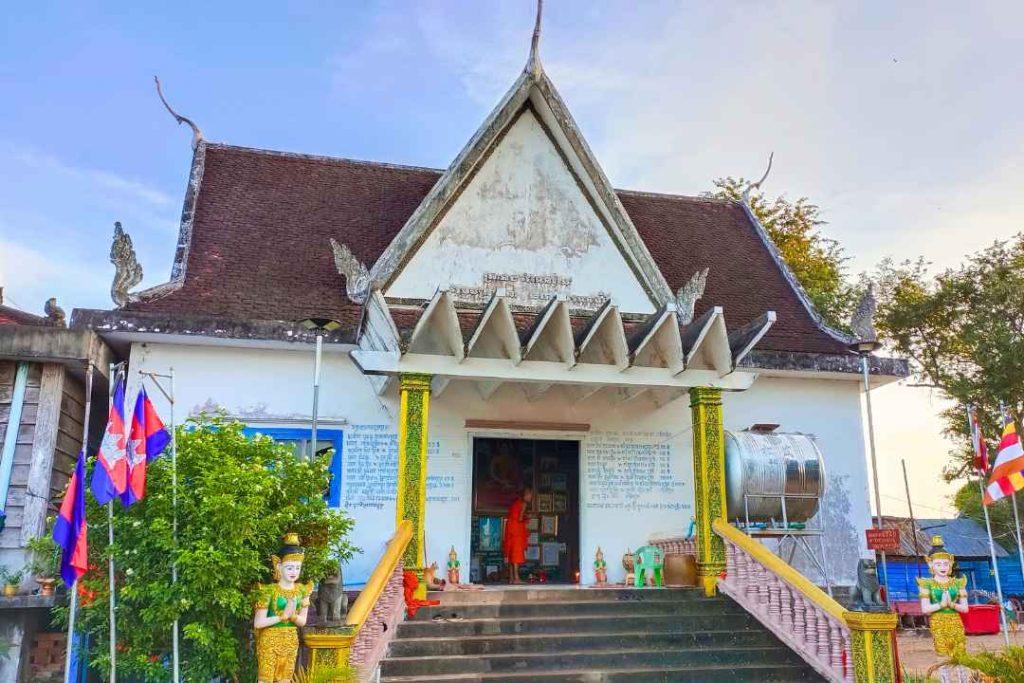
EXTRA HIGHLIGHT
Khmer New Year (Bon Chol Chhnam Thmei)
Celebrated on April 13th or 14th, this three-day festival marks the end of the harvest season and is Cambodia’s most significant and anticipated event.
Cities come to a standstill as locals return to their villages, reuniting with loved ones, hosting lively parties, and paying homage at local pagodas.
The atmosphere is electric, with every street adorned in vibrant hues, music filling the air, and the aroma of delectable traditional dishes tantalizing the senses.
EXTRA HIGHLIGHT
Pchum Ben (Ancestor’s Day)
Running from late September to mid-October, Pchum Ben is a poignant celebration that honors the bond between the living and the deceased.
Envision a sea of white-clad Cambodians flocking to pagodas, bearing offerings of food and prayers for their ancestors. The belief is that these offerings bring merit, indirectly benefiting the departed souls.
EXTRA HIGHLIGHT
Visakh Bochea Day (Buddha’s Birth Commemoration Ceremony)
“Celebrate the life, enlightenment, and passing of the Buddha on Visakh Bochea Day, a spiritual odyssey that transcends time and space.”
Held in May, this auspicious day commemorates the trifecta of the Buddha’s birth, enlightenment, and death. Imagine the air thick with the scent of incense as devotees gather at pagodas, dressed in their finest attire, to pay homage to the teachings of the Enlightened One.
The melodious chanting of monks resonates through the halls, creating a serene atmosphere that invites introspection and inner peace. As you partake in this sacred celebration, you’ll gain a deeper appreciation for the profound impact of Buddhism on Cambodian culture.
EXTRA HIGHLIGHT
Water Festival (Bon Om Touk)
“Brace yourself for an unforgettable spectacle as the waters of the Tonle Sap River come alive during the Water Festival, a captivating celebration of Cambodia’s aquatic heritage.”
Every November, the Tonle Sap River reverses its flow, marking the beginning of the fishing season.
This natural phenomenon is celebrated with the Water Festival, a vibrant showcase of Cambodia’s rich maritime traditions. Imagine the energy of two million people converging in Phnom Penh, cheering on colorful boat races that pay homage to the nation’s powerful naval forces of yore.
The riverside transforms into a carnival-like atmosphere, complete with traditional music, mouthwatering street food, and an infectious sense of revelry that will leave you spellbound.
For the MySiemReaptours.com audience, these events present a unique opportunity to experience the rich tapestry of Cambodian culture firsthand. Visitors can immerse themselves in the festivities, observe traditional rituals, and gain a deeper appreciation for the country’s values and beliefs.
Quote from a Local Expert: As Mr. Brown, our local tour guide, explains, “These festivals are not just celebrations; they are a window into the soul of our nation. Witnessing the vibrant colors, the ancient rituals, and the unwavering devotion of our people is truly a humbling and enriching experience for any visitor.”
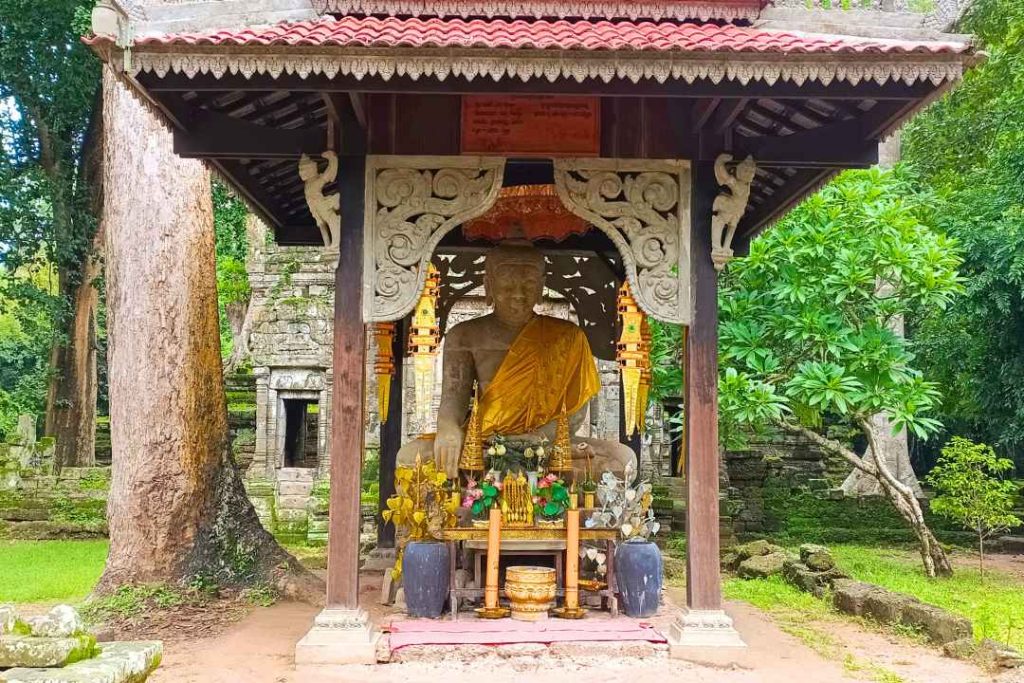
Celebrate Cambodia: A Year-Round Guide to Vibrant Festivals and Significant Events
Each event is steeped in tradition and offers a unique glimpse into the nation’s heritage and communal spirit!
This table organizes the festivals and events in Cambodia along with their corresponding calendar dates, which will make it easier for you to visualize and plan your next travel experience to meet these cultural experiences:
| Festival/Event | Date(s) | Description |
|---|---|---|
| Khmer New Year (Bon Chol Chhnam Thmei) | April 13 or 14 | Marks the end of the harvest season, most important holiday. |
| Royal Ploughing Ceremony (Bon Chroat Preah Nongkoal) | May | Begins the rice-growing season, with royal predictions. |
| Meak Bochea Day | Full moon of Meak | Commemorates the gathering of monks to hear Buddha’s preaching. |
| Visakh Bochea Day | May | Celebrates the birth, enlightenment, and death of Buddha. |
| Water Festival (Bon Om Touk) | November | Features boat races, celebrates the river’s reversal. |
| Pchum Ben (Ancestor’s Day) | Late September to mid-October | A 15-day festival to honor ancestors with offerings. |
| International Labor Day | May 1 | Global celebration of workers’ achievements. |
| International Women’s Day | March 8 | Focuses on women’s achievements and rights. |
| Victory Day over the Genocidal Regime | January 7 | Marks the end of the Pol Pot regime with national pride. |
| Constitution Day | September 24 | Commemorates the signing of the Cambodian constitution. |
| National Independence Day | November 9 | Celebrates independence from France in 1953. |
| Royal Birthday of King Norodom Sihamoni | May 14 | Public holiday honoring the current king. |
| Queen Norodom Monineath Sihanouk’s Birthday | June 18 | Honors the Queen Mother of Cambodia. |
| Coronation Day of King Sihamoni | October 29 | Celebrates the coronation of King Norodom Sihamoni. |
The following is a presentation made just by our Tour Planner for the guests of MySiemReaptours.com
Few experiences can match the profundity and authenticity of witnessing Pchum Ben, the sacred Buddhist festival honoring ancestral spirits.
This 15-day celebration offers an unparalleled opportunity to immerse yourself in the rich tapestry of Cambodian traditions, where the veil between the living and the departed grows thin, allowing you to connect with the very essence of this resilient nation’s spiritual heritage.
Pchum Ben - A Sacred Celebration of Ancestral Bonds
In the cultural tapestry of Cambodia, few festivals carry the profound significance of Pchum Ben, also known as Ancestor’s Day. This 15-day Buddhist celebration is a time when Cambodians honor the spirits of their deceased relatives, paying homage to those who have passed over the past seven generations.
History and Significance – Ancient Roots, Enduring Reverence
Tracing its origins back to the Angkorian era, Pchum Ben is deeply woven into the fabric of Cambodian culture. It is a time when the veil between the world of the living and the departed is believed to be at its thinnest, allowing the spirits of the dead to return and receive offerings from their living relatives. This ancient festival is seen not only as a means of respecting ancestors but also as a way to generate merit, which is believed to benefit both the deceased and the living.
Celebrations – The Duality of Kan Ben and Ben Thom
The festival is divided into two distinct phases: “Kan Ben” (observed celebration) and “Ben Thom” (the final day of offerings). During the first 14 days, Buddhists flock to pagodas and temples, offering food, candles, and prayers to the monks. On the 15th day, families gather to make offerings directly to their ancestors, participating in traditional ceremonies that have been passed down through generations.
Cultural Significance – Fortifying Familial Ties, Upholding Buddhist Tenets
Pchum Ben is more than just a religious observance; it is a celebration of family bonds and the reinforcement of Buddhist values. It is a time when Cambodians come together, share meals, and honor the memories of their ancestors. The festival also holds significant economic importance, with businesses and restaurants offering special menus and promotions to cater to the increased demand during this period.
- The main rituals performed during Pchum Ben, also known as Ancestor’s Day, include a series of ceremonies and practices deeply rooted in Cambodian culture and Buddhist traditions. These rituals are essential components of the festival and hold significant cultural and spiritual importance:Offerings to Monks: During the festival, Cambodians offer food and candles to monks at pagodas and temples. This act of generosity is believed to generate merit that benefits the deceased ancestors.
- Rice Offerings: A symbolic ritual involves the preparation of rice balls, known as “Bay Ben,” which are offered to ghosts at sunrise, particularly for those who died with heavy sins. These rice balls are believed to be consumed by spirits who cannot walk the earth while the sun is out.
- Visiting Pagodas: Cambodians visit pagodas to offer gifts to their deceased relatives who have passed away. This practice is a way of honoring and remembering ancestors during Pchum Ben.
- Preparing Food for Ancestors: Families prepare elaborate meals and special dishes, including Bay Ben, to offer to their ancestors. This act of preparing and sharing food is a way to show respect and care for the deceased.
- Ceremonial Practices: The festival involves various ceremonial practices, such as processions around temples and pagodas, where crowds of people wait outside with incense sticks while monks perform rituals inside. Symbolic events with piles of sand or rice pointing to Mount Meru are also part of the ceremonies.
- Cultural Traditions: Pchum Ben is a time for families to come together, share meals, and strengthen family bonds. It is a festival that reinforces Buddhist values, gratitude, and respect for ancestors.
These rituals and practices during Pchum Ben reflect the deep cultural and spiritual significance of the festival in Cambodia, emphasizing the importance of honoring and remembering deceased relatives through offerings, prayers, and communal gatherings.
Culinary Traditions – Nourishing the Soul, Bridging the Realms
Food plays a pivotal role in Pchum Ben celebrations, serving as a bridge between the living and the departed. Traditional dishes such as “Bay Ben” (sticky rice balls) are meticulously prepared and shared among families and monks. The act of preparing and sharing meals is not only a means of nourishment but also a way to generate merit for the deceased and strengthen familial bonds.
As Cambodian author and cultural advocate, Sokhom Sam, eloquently states, “Pchum Ben is a testament to the enduring spirit of our people. It is a time when we honor our past while embracing the present, ensuring that the threads of our ancestors’ legacy remain woven into the fabric of our lives.”
In a world where traditions often fade, Pchum Ben stands as a beacon of cultural preservation, reminding us of the enduring bonds that transcend the boundaries of life and death.
For visitors to Cambodia, witnessing this sacred celebration is an opportunity to immerse themselves in the rich tapestry of Cambodian culture and gain a deeper appreciation for the values that have shaped this resilient nation.
Related Links
- Festivals and Events in Cambodia and Siem Reap – Explore the vibrant festivals and events that mark Cambodia’s cultural calendar.
- Experience Yoga in Siem Reap – Combine cultural exploration with wellness by engaging in yoga during your visit.
- Siem Reap with a Tour Guide on a Private Day Tour of the City – Enhance your understanding of local traditions and celebrations with a guided tour.
- The Spiritual Side of Angkor – Delve into the spiritual heritage that permeates Cambodian festivals and events.
- Top 10 Hidden Gems in Angkor – Discover lesser-known sites that reflect the culture celebrated during national holidays.
- Siem Reap Historical Tours and Itineraries – Connect with the historical contexts of the festivals through tailored tours.
Featured
Explore more on My Siem Reap Tours
Koh Ker and Beng Mealea guided tour | Banteay Srei temple tour semi-private guided tour | Angkor Wat Sunrise shared tour | Koh Ker and Beng Mealea guided tour | Morning Siem Reap floating village tour | Afternoon Siem Reap floating village tour | Private Angkor Wat special tour | Kulen Waterfall small group guided Tour | Private Angkor Wat mix temples photo tour
